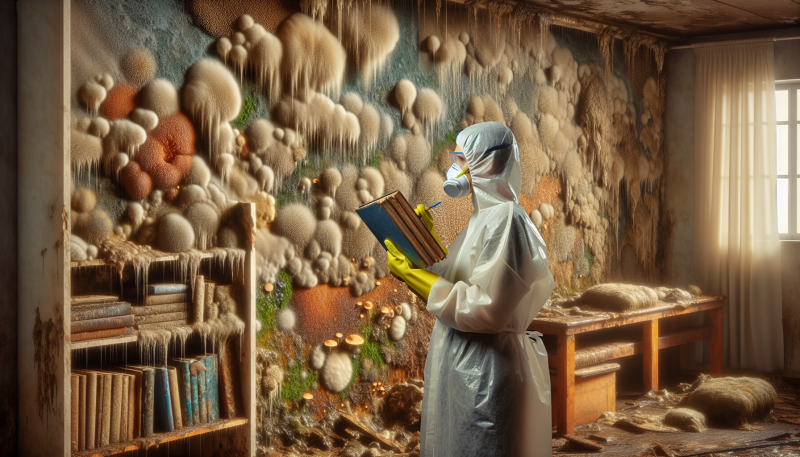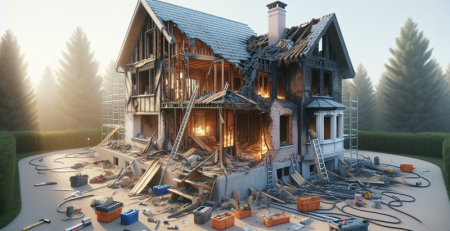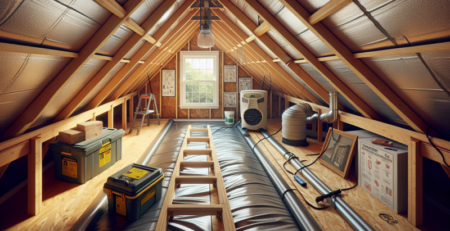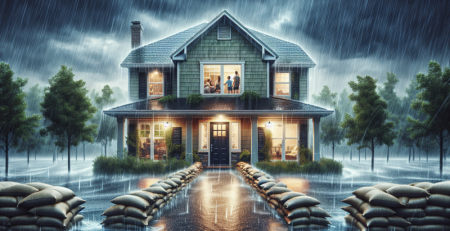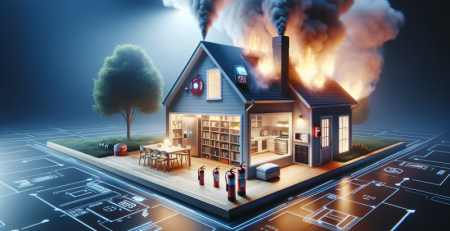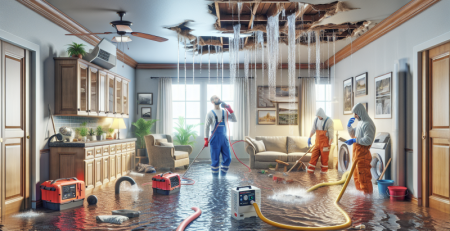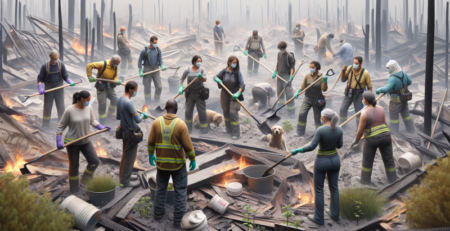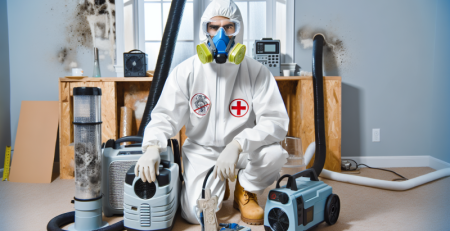Understanding the Long-Term Effects of Mold Exposure
Mold is more than just an unsightly blemish on your walls; it can have serious long-term effects on your health and property. If you’ve ever dealt with water damage, you know how quickly mold can take hold. In New Jersey, where humidity levels can be high, understanding the implications of mold exposure is crucial. This guide will walk you through the long-term effects of mold exposure, how to identify it, and what steps you can take to mitigate its impact.
What is Mold and Why is it a Concern?
Mold is a type of fungus that thrives in damp environments. It reproduces by releasing spores into the air, which can be inhaled or come into contact with skin. While some molds are harmless, others can produce allergens and irritants that may lead to health issues. The concern with mold arises not only from its potential to cause health problems but also from its ability to damage property.
When mold grows in your home, it can weaken structures, damage walls, and compromise the integrity of your property. This is where water damage restoration in New Jersey becomes essential. If you experience water damage, it’s crucial to act quickly to prevent mold growth. The longer you wait, the more extensive the damage can become.
Health Effects of Mold Exposure
Exposure to mold can lead to a variety of health issues, particularly for individuals with pre-existing conditions such as asthma or allergies. Common symptoms include:
- Respiratory problems
- Skin irritation
- Sinus congestion
- Headaches
- Fatigue
In some cases, prolonged exposure can lead to more severe health complications. For instance, certain molds produce mycotoxins, which can cause neurological issues and other serious health problems. If you suspect mold in your home, it’s vital to seek mold cleanup services in New Jersey as soon as possible.
Identifying Mold in Your Home
Identifying mold can sometimes be tricky, as it often grows in hidden areas. Here are some signs to look out for:
- Visible mold growth on walls, ceilings, or floors
- A musty odor in your home
- Water stains or discoloration on surfaces
- Increased allergy symptoms among household members
If you notice any of these signs, it’s time to take action. Don’t wait for the problem to escalate. Contact Kraus Restoration, NJ’s leaders in water, mold, and fire damage restoration, for a professional assessment.
The Importance of Professional Mold Remediation
While DIY mold removal might seem tempting, it can often do more harm than good. Professional restoration services are equipped with the right tools and expertise to handle mold safely and effectively. Here’s why you should consider hiring IICRC certified experts:
- Thorough Inspection: Professionals conduct a comprehensive inspection to identify the extent of the mold problem.
- Safe Removal: They use specialized equipment and techniques to remove mold without spreading spores.
- Preventive Measures: Experts can advise on how to prevent future mold growth, ensuring your home remains safe.
In New Jersey, companies like Kraus Restoration offer professional restoration services that include rapid response restoration and 24/7 emergency services. This means you can get help whenever you need it, minimizing the risk of long-term damage.
Long-Term Property Damage from Mold
Ignoring mold can lead to significant property damage over time. Mold can weaken structural components, such as beams and drywall, leading to costly repairs. Furthermore, mold can also affect your home’s resale value. If you plan to sell your property, potential buyers may be deterred by the presence of mold or water damage.
In Central and Northern New Jersey, where humidity can be a persistent issue, regular inspections and maintenance are essential. If you experience water damage, it’s crucial to engage in fire damage repair in New Jersey and mold cleanup promptly to avoid long-term repercussions.
Steps to Take After Mold Exposure
If you suspect mold exposure, here are the steps you should take:
- Assess the Situation: Determine the extent of the mold growth and any potential health symptoms.
- Contact Professionals: Reach out to a certified restoration service for an inspection and remediation plan.
- Document Everything: Take photos and keep records of any damage for insurance purposes.
- Follow Up: After remediation, ensure that you take preventive measures to avoid future mold growth.
Remember, acting quickly can save you time, money, and health issues down the line. Kraus Restoration offers rapid response restoration services to help you get back on track.
Preventing Mold Growth in Your Home
Prevention is always better than cure, especially when it comes to mold. Here are some tips to keep your home mold-free:
- Control Humidity: Keep indoor humidity levels below 60%. Use dehumidifiers if necessary.
- Ventilation: Ensure proper ventilation in areas prone to moisture, such as bathrooms and kitchens.
- Regular Inspections: Conduct regular inspections for leaks and water damage.
By taking these proactive measures, you can significantly reduce the risk of mold growth in your home. If you do encounter water damage, remember to contact Kraus Restoration for immediate assistance.
Conclusion
Understanding the long-term effects of mold exposure is crucial for maintaining a healthy home and protecting your property. Mold can lead to serious health issues and significant property damage if left unaddressed. By recognizing the signs of mold, seeking professional help, and taking preventive measures, you can safeguard your home and health. Remember, when it comes to mold, it’s always better to be safe than sorry. If you suspect mold in your home, don’t hesitate to reach out to Kraus Restoration at (973) 886-2021 for expert assistance.
What are the symptoms of mold exposure?
Symptoms of mold exposure can include respiratory issues, skin irritation, sinus congestion, headaches, and fatigue. Individuals with asthma or allergies may experience worsened symptoms.
How can I tell if I have mold in my home?
Look for visible mold growth, a musty odor, water stains, or increased allergy symptoms among household members. If you suspect mold, it’s best to consult professionals.
Can I remove mold myself?
While small patches of mold can sometimes be cleaned with proper precautions, it’s often safer and more effective to hire professionals who can ensure complete removal and prevent further growth.
How can I prevent mold growth in my home?
To prevent mold growth, control humidity levels, ensure proper ventilation, and conduct regular inspections for leaks or water damage. Using dehumidifiers can also help.
What should I do if I experience water damage?
If you experience water damage, act quickly to dry the area and contact a professional restoration service for water damage restoration in New Jersey to prevent mold growth.
